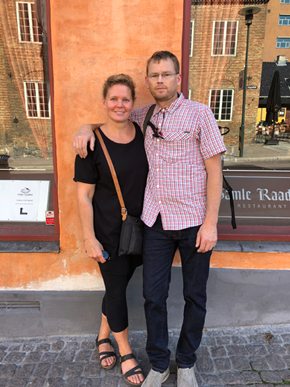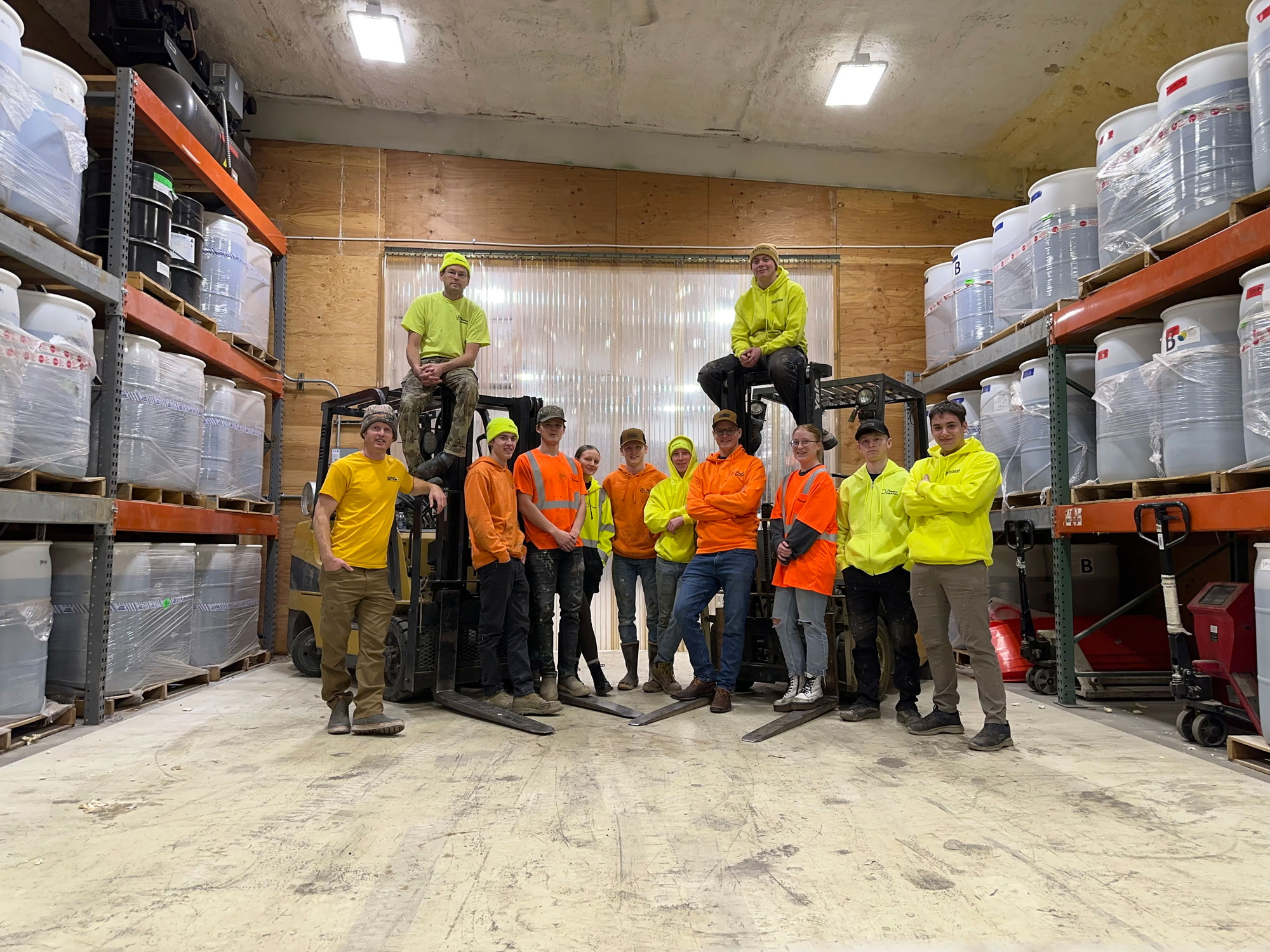- >CALL ☎
- >TEXT 💬
WHY CHOOSE US
PREMIER INSULATION
We start with a complimentary, in-home consultation with one of our licensed insulation experts. You will be quoted fair prices - with no hidden fees - and provided with a reasonable installation timeline from start to finish. Our estimates are sent directly to your email inbox, where you can see line-item pricing as well as terms and conditions.
We Keep Our Promises
Trust is the cornerstone of our long-term success. We have served thousands of happy clients and look forward to serving you!
YOU'RE IN GOOD HANDS
WE DO IT RIGHT
We show up on time, maintain a tidy job site and perform high-quality work.
WE DO IT SAFELY
Keeping you and your family safe is the most important thing we do.
WE STAND BEHIND OUR WORK
has the best warranties in the business.
WE GUARANTEE YOUR SATISFACTION
Frequently Asked Questions
spray foam insulation is professionally installed at the same point in the construction cycle as other types of insulation. That is, it should be installed after the rough plumbing, electrical wiring, and heating and air conditioning ducts have been installed, but before the interior walls are completed in new home construction. In some cases spray foam also can be applied in older homes, to the inside of roofs and under floors after construction has been completed.
A two-part mixture is applied by trained applicators to the inside surface of exterior walls, to the underside of the roof, and beneath floors in basements and crawlspaces. The spray mixture expands rapidly to fill all cracks and voids, completely and permanently adhering to wood, masonry, metal studs and joists.
There are two basic types: closed-cell, rigid spray foam and "soft" or semi-flexible open-cell spray foams. See the article Learning the Difference between 1/2-lb and 2-lb Spray Polyurethane Foam for more information.
When it comes to insulating your project, choosing the right insulation material is pivotal. Both open cell and closed cell spray foam insulations offer unique benefits depending on the application. While open cell foam may offer cost savings and better sound absorption, closed cell foam provides superior moisture resistance and structural support.
Ultimately, the decision between the two depends on your specific priorities, budget, and what application the foam is being used in.
You can read more about their differences here and our experts can help you navigate these factors and ensure the best choice for an efficiently insulated and durable structure.
Unlike cellulose and fiberglass materials, closed-cell foam is impervious to water absorption and wicking. Yet, like Gortex® fabric, the closed-cell structure allows the passage of water vapor (high energy particles) to allow your home envelope to "breathe".
Liquid water has much larger particles and is unable to pass into or through a closed-cell foam barrier.
-
You won't need house wrap with our system.
The air and moisture sealing effects of the spray polyurethane insulation are far superior to what house wraps can do. Don't waste your money on house wrap if you are insulating with spray polyurethane. -
You can encapsulate your entire exterior house shell with spray polyurethane.
This reduces energy loss from recessed lights and drop ceilings while minimizing any chance of frozen pipes in colder climates. In effect, this creates conditioned space everywhere including attics, basements, and crawlspaces. When ductwork is run through these areas, it is kept within conditioned space, substantially increasing the energy efficiency of your home. -
Spray polyurethane insulation will conform to any size or shape cavity.
Bay windows, oval windows, angled walls, sloped ceilings, or any other unusual framing designs can be well insulated and tightly sealed the same as the uniform spaced stud walls.
Several:
Our spray polyurethane insulation is sprayed on as a liquid which reacts and expands in place. This expansion action also seals all of the cracks and crevasses in your wall's exterior sheathing. The result is that air can no longer slip in: your house will be less drafty and more comfortable.
Air leakage can also introduce moisture into the wall cavity, resulting in wet insulation and mold and mildew. With the sealing effects of our spray polyurethane insulation, this will not be a concern.
Most house design professionals will advise you to seal the house structure as tight as possible and provide the necessary ventilation through the heating and air conditioning system.
Many systems employ an "air exchanger" which is designed to pre-condition (either warm or cool) the incoming outside air with the outgoing exhaust air.
In this manner, you can build an extremely energy efficient exterior shell using spray polyurethane foam while still providing controlled and energy efficient ventilation.
Yes. Building codes provide for the use of spray polyurethane insulation in the Foam Plastic section. This section of the code also describes the use of thermal barriers.
Normally spray polyurethane insulation is installed at the same point in the construction cycle as other types of insulation. That is, it should be installed after the rough plumbing, electrical wiring, and heating and air conditioning ducts have been installed.
If you decide to seal the entire exterior house shell with spray polyurethane, spray insulation may need to be applied in some areas before the ductwork is installed.
Yes. A popular retro-fit use for spray foam insulation calls for applying it to your basement / crawlspace walls and rim joist to massively increase your energy savings.
Another area is attics that need upgrades - baffles are installed and foam is sprayed directly to the underside of roofing system, or to knee walls in the attic area that are prone to leaking air. This can replace the conventional blown in insulation used in the ceilings in some scenarios, but not all.
One technology on the market is Injection Foam; injection foam is used to fill existing walls by drilling small holes and injecting the foam from the outside of the structure. After exhaustive research, we have determined the foam type necessary for this isn't up to our standards, so don't offer this service (it is formaldehyde based and offers very poor R-values). We have found the best time to upgrade to spray foam is when the wall cavity will already be exposed during a remodel.
- Glass fiber batts will not stop air leakage (it might filter out some dirt and dust).
- Blown-in cellulose will slow down air leakage.
- Spray polyurethane insulation will fully stop air leakage.
- Glass fiber batts have an R-value of about 3.5 (1-inch thickness).
- Blown-in cellulose has an R-value of about 3 to 4 (1-inch thickness).
- Spray applied polyurethane insulation has an R-value of 6.5 to 7 (1-inch thickness).
- Glass fiber batts can sag over time.
- Blown-in cellulose can settle over time.
- Spray polyurethane insulation completely adheres to wood and sheathing and is rigid; the result is a permanent barrier to heat loss and air entry.
- Spray polyurethane insulation will add strength and rigidity to your house. Glass fiber batts and blown-in cellulose will not.
Air Leakage:
R-value:
Lasting Ability:
Yes! The installed cost of spray polyurethane is somewhat higher than traditional fiber batts or blown-in cellulose. However, the higher initial cost is partially offset because you need not ventilate the roof, the HVAC system is downsized and you will save in your heating fuel and electric bills.
Studies suggest that homes insulated with spray polyurethane use 35 to 60 % less energy than homes insulated with conventional insulation. Your savings may be greater or less depending on your life style, appliances, house site, number and size of windows, etc.
When first installed, spray polyurethane foam's R-value is about 10 for a one-inch thickness.
Over time, the R-value drops to between 6.5 and 7.0 (one inch) and stabilizes at that value. The time it takes to reach an R-value of 6.5 to 7.0 depends on a variety of factors, including total foam thickness.
We report a six-month aged R-value. Many industry studies indicate that a one-inch thick sample of foam will stabilize after six months and maintain that approximate R-value for decades.
Spray polyurethane can be applied directly to electrical wiring. Recessed lights or other fixtures may require a certain amount of air circulation around them for cooling purposes.
In these cases, a box can be build around the fixture with gypsum wall board; then spray foam can be sprayed directly to the outside of the box.
Not that we're aware of. We've looked at 20-year old spray foam projects and we have not observed any signs of deterioration. We expect our spray polyurethane insulation system to insulate and seal your home for the life of the house.
Spray polyurethane foam was commercially developed in the United States in the mid-1960's. Homes have been insulated with spray foam since that time.
Most moisture problems in houses are due to moisture entry from air leakage. Because spray polyurethane insulation provides such an excellent air barrier, this source of moisture is virtually eliminated.
Other potential sources of moisture can be excluded with proper construction techniques and materials. Unusual building use (such as freezers or swimming pool buildings) may require a vapor retarder.
No.
Required equipment elements include a plural component proportioner pump with heaters, dual high pressure heated hoses, high pressure mixing and spray gun, and feed pumps and hoses. In addition, an air compressor and electrical generator may be needed.
Not practically. Spray polyurethane application requires complex equipment and a skilled installer.
Yes! Our closed cell foam is rigid and structural. Your walls will be more resistant to winds and you'll notice less creaking and shaking when doors are slammed or when the kids are romping about.
Quite quickly. A typical 2000 sf house can be fully prepped and insulated with spray polyurethane in less than several days. Large houses or houses with complex design features could take longer.








